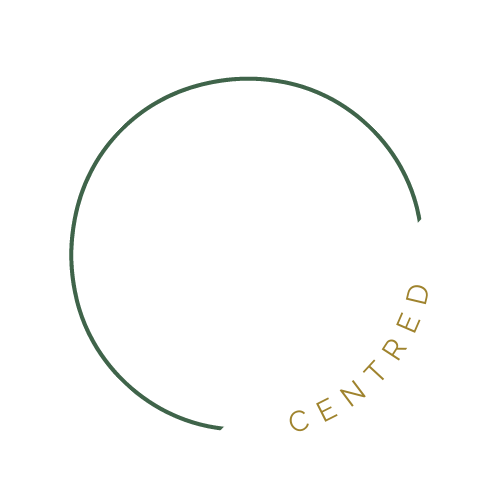You’ve cut out gluten. You shop organic. You follow the wellness influencers. So why are you still bloated, exhausted, inflamed… stuck?
This question haunts so many people, especially women in their 30s to 50s. You’ve been told that if you just eat clean, get enough sleep and do some weight training, healing will follow. But what if clean eating and your daily workout aren’t enough?
The truth is, clean eating can only take you so far, especially if your body is overfed but under-cleansed. Healing is a multi-layered process, and food is just one piece of the puzzle.
Let’s explore why clean eating alone doesn’t guarantee healing—and what your body might actually be crying out for.
You’re overfed, but under-cleansed
Many people are eating whole foods and calling it “healthy”—but they’re eating too frequently, even if it’s clean. The body is never given a true chance to cleanse at the cellular level.
Even the best foods create metabolic waste. Without a break from digestion, your body never initiates the deep processes of autophagy, where it clears out old, damaged cells.
Autophagy which is triggered by fasting, was the subject of the 2016 Nobel Prize in Medicine. It plays a critical role in cellular repair and disease prevention.
Your liver, kidneys, and lymphatic system need rest to perform optimally. But in our snack-obsessed culture, the body is constantly processing, even when the food is considered clean.
What most people need isn’t more green smoothies, it’s the space for the body to reset.
You’re not addressing the root cause: cellular dysfunction
Most symptoms such as fatigue, hormonal imbalances, brain fog, autoimmune flare-ups, begin at the cellular level. Clean food can support cells, but it doesn’t reverse years of toxic build-up, chronic inflammation, or poor mitochondrial function.
Most of us spent our student years binge eating and drinking, not thinking beyond satisfying the fast food craving we had that day. Add to that years of exposure to processed foods, artificial additives, pesticides, alcohol, stress, and environmental toxins, and we end up with a significant toxic burden stored in our tissues. These toxins accumulate in our fat cells, organs, and brain, often silently. Over time, they contribute to mitochondrial dysfunction, impaired cellular communication, and inflammation, the root of many chronic conditions.
Even if you’ve cleaned up your diet in recent years, the residue from the past remains unless you actively support detoxification processes. Nutrients from clean foods may help nourish your cells, but they don’t automatically trigger the kind of deep cellular repair that’s required to undo decades of damage.
Fasting gives the body the metabolic pause it needs to recalibrate energy systems, increase insulin sensitivity, and promote stem cell regeneration. It moves the body into a state where it prioritises repair over growth.
A 2014 study by Longo et al. in Cell Stem Cell found that prolonged fasting not only reduced immune cell damage but also regenerated immune cells. That’s not something kale can do.
When cells are toxic, underperforming, or unable to communicate effectively, no amount of organic food can restore function. Detoxification must happen at the cellular level. This is where fasting becomes not just a dietary choice, but a therapeutic intervention. It activates autophagy, clears out cellular debris, and makes way for the regeneration of new, healthier cells.
Healing begins when the body has the space and conditions to do what it was designed to do—clean, repair, and regenerate. Fasting provides that space.
Your gut is still inflamed
Even with a clean diet, many guts remain leaky, inflamed, or dysbiotic. When digestion is impaired, your body can’t properly absorb the nutrients you’re working so hard to eat. This is why so many people feel stuck despite doing “everything right.”
Fasting gives your digestive system the pause it needs—a full reset to repair the gut lining, rebalance microbial diversity, and reduce gut-driven inflammation. In fact, many of my clients report more digestive improvement from three days of fasting than from three years of supplements and probiotics.
Still bloated despite eating clean? It’s not the food—it’s the internal terrain.
The gut is also deeply connected to mood, immunity, and hormone regulation. Often referred to as the “second brain,” the gut contains a vast network of neurons and produces neurotransmitters like serotonin and dopamine—both vital for emotional wellbeing. Over 70% of your immune system lives in the gut lining, so chronic inflammation here can directly weaken immune function. And when the gut is compromised, it disrupts the liver’s ability to metabolise hormones effectively, contributing to issues like oestrogen dominance and thyroid dysfunction.
Resetting your gut through periods of digestive rest may be the linchpin to unlocking systemic healing throughout the entire body.
You’re holding onto unprocessed emotional trauma
This is the part no one talks about.
Food cannot heal what’s rooted in emotional and spiritual trauma. Many people carry unprocessed grief, loss, betrayal, or abandonment in their bodies. These emotions embed in the nervous system and tissues.
Trauma is stored in the body, not just in the mind. Studies in somatic psychology and neurobiology confirm this.
Fasting slows everything down. It quiets external noise and gives space for unresolved pain to rise and be witnessed, felt, and released.
I’ve seen it repeatedly: on day two or three of a fast, suppressed emotions surface, and healing finally begins.
You cannot eat your way out of trauma. You must feel your way through it. Fasting makes room for that.
You’re not letting your hormones recalibrate
Many women struggle with hormonal chaos—oestrogen dominance, adrenal fatigue, thyroid imbalances. They eat clean, take the supplements, and follow the protocols, yet still feel stuck.
Why? Because hormone balance isn’t just about what you eat—it’s about how well your cells respond, how efficiently your body clears hormones, and whether your rhythms are aligned.
Fasting helps restore that alignment. It improves hormone receptor sensitivity, particularly for insulin, leptin, and oestrogen. It also gives the liver and gut the break they need to metabolise and eliminate excess hormones more effectively.
Fasting isn’t about starving—it’s a strategic pause that supports your body’s natural rhythm and recalibration.
Clean eating supports the system. But fasting, especially when structured around the female hormonal cycle, can transform it.
Your refeed is sabotaging your progress
Even if you fast, a poor refeed can undo the benefits.
After fasting, the body is highly insulin sensitive. If you immediately reintroduce sugar, heavy starches, or inflammatory foods, it spikes inflammation and exhausts the gut.
A thoughtful refeed supports healing rather than disrupting it.
Start slow: think bone broth, melons with sea salt, soft-boiled eggs, avocados. Nourish your body gently while it transitions back to digestion.
In my first 36-hour dry fast, I broke it slowly with this exact approach, and still felt a wave of fatigue and emotional release that reminded me: you’re still in the process. Fasting isn’t just about feeling euphoric. It’s about letting go.
You’ve outsourced your inner wisdom
The wellness world is noisy – everyone has a protocol, a product, a plan. It’s easy to get disconnected from your own body’s wisdom.
Fasting brings you back to your body. It creates space to notice, feel, and recalibrate your instincts. It strips away the clutter so you can hear the subtle signals again.
This is why fasting is not just physical—it’s spiritual and emotional too.
When you stop feeding distractions, your body finally speaks, and healing begins.
And that inner wisdom? It’s the most trustworthy guide you’ll ever have.
What people are searching for: Why am I still sick while eating healthy?
Many people search this question, frustrated that their efforts aren’t working.
This article directly answers that question, showing that clean food is part of the picture, but without cellular detox, trauma resolution, hormonal reset, and spiritual stillness, true healing remains elusive. It sounds complicated, yet it’s miraculously transformative in its simplicity.
Healing is not about more effort—it’s about deeper alignment.
You’re not broken. You’re just out of sync. And fasting helps you tune back in.
So what can you do?
- Start with awareness: know that your symptoms are not random—they’re messengers
- Consider a strategic, supported fasting protocol—not for weight loss, but for healing
- Look beyond food: what emotions are unprocessed? What habits keep your nervous system dysregulated?
- Honour the refeed: it’s the sacred bridge between healing and nourishment
- Reclaim your body’s voice. You were designed to heal
- Don’t be afraid of the discomfort—it’s part of the process
Ready to reset?
If you’re curious about how fasting could unlock the healing you’ve been searching for, I invite you to join my 36-hour reset group.
This isn’t about willpower or quick fixes—it’s about giving your body the pause it’s been craving.
You can eat clean forever. But if your body is full, stressed, and emotionally burdened, it will never feel safe enough to fully heal.
Healing requires emptiness, stillness, and space.
Fasting gives you all three.

